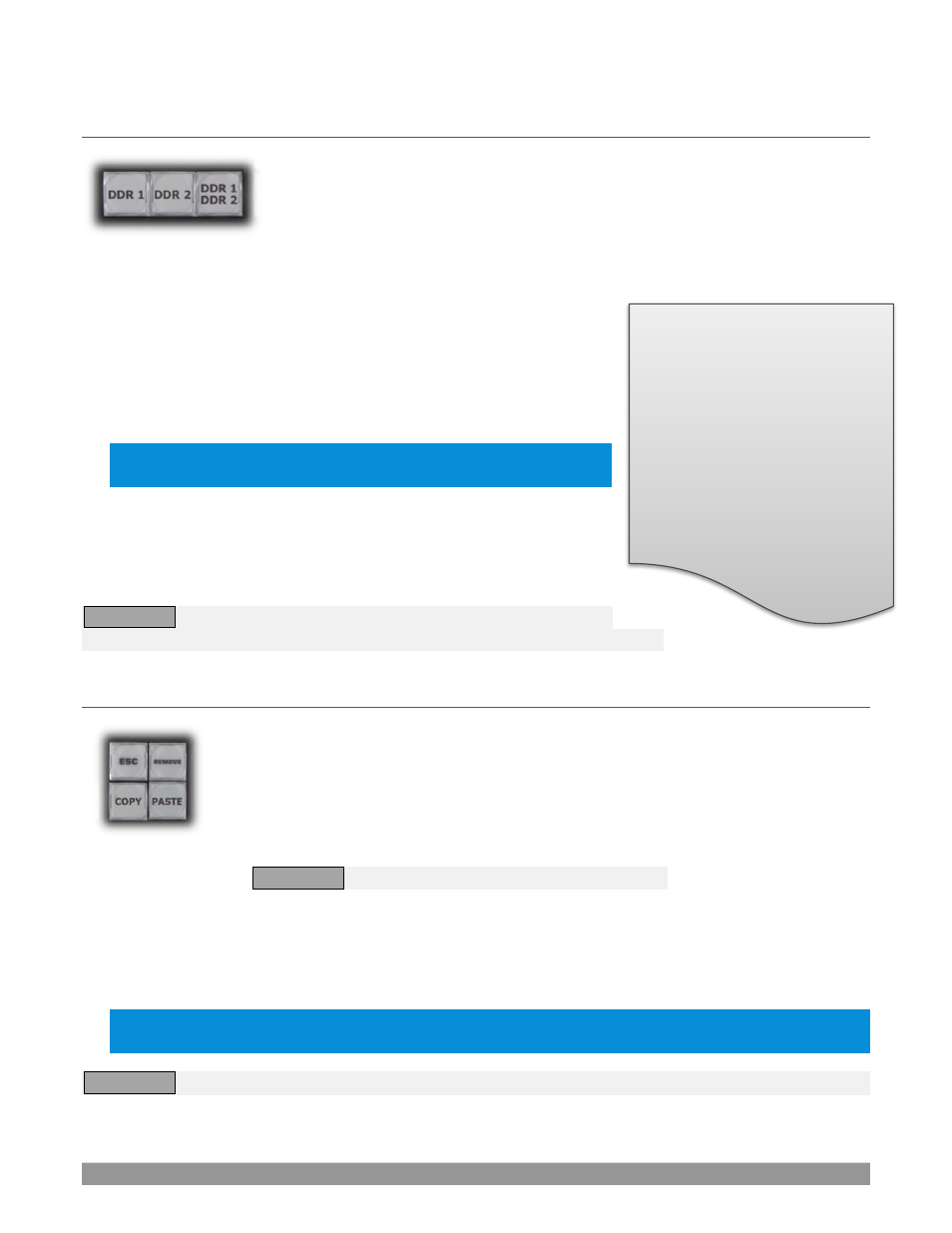Section 24.4 edit group, Section 24.5 play speed – NewTek TriCaster TC1 (2 RU) User Manual
Page 277

P a g e | 261
SECTION 24.3
DDR DELEGATE
FIGURE 310
Much of the functionality of your TriCaster 850 TW relates to clip
playback, navigation, and the like. These are essentially
Media Player
functions, controlling one or another of TriCaster’s
DDRs
.
The first two buttons in this group (
DDR 1
and
DDR 2
) basically delegate
the other controls to the service of the
DDR
named (TriCaster 300 is, of
course unique in having just one
DDR
).
Note: These buttons only relate to TriCaster 850 TW operations, and do
not interact with the Switcher (or TriCaster 855 CS) delegate buttons.
The third button in this group button is
not
a delegate button (nor is it a
radio button). The
DDR 1/DDR 2
button is a toggle switch. When enabled,
it tells the control surface to apply
DDR Transport
control group
operations to both DDRs (see Section Section 24.11).
TW-42
N
OTES
There is no corresponding
DDR 1/DDR 2
button on TW-42.
Multi-delegating DDRs is not supported with this control surface.
SECTION 24.4
EDIT GROUP
FIGURE 311
In general, these buttons operate on selected playlist content
in the currently delegated
DDR
(see Section Section 24.3).
•
Remove
–
Push to remove currently selected entries from
the delegated
DDR
’s playlist
(selected items are not
deleted from the hard drive, however).
TW-42
N
OTES
The
Remove
button is labeled
RMV
on TW-42.
•
Copy
–
Push to copy currently selected playlist items into the Paste buffer.
•
Paste
–
Push to insert Paste buffer content into the playlist of the delegated DDR
•
Esc
–
close any popup dialog or text entry item.
Hint: These four buttons are also
‘action buttons’ –
that is, pushing one of them has an immediate effect (but
unlike a radio button, the operation is complete on release, and does not remain in force).
TW-42
N
OTES
There are no
Copy, Paste or Esc
buttons on TW-42.
The DDR 1 and DDR 2 buttons are
‘radio button’ controls. This
means that they operate just like
the ‘Favorite’ buttons provided
on a car radio to let you jump to a
preset station.
Pressing a button produces an
immediate change of state, and
your selections are mutually
exclusive.
